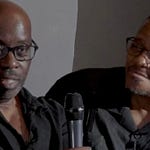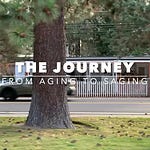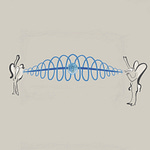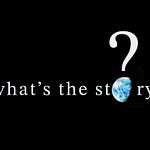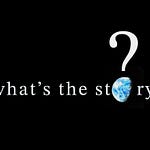From whence we came
Transitioning into the age of personal computers, networking and excited sense of mind…
In 1995 Manfred and I set out to explore the Silicone Valley and Bay Area Wired culture willing itself into being. We created this documentary film for German Television.
Herein you will find the complete interview with Howard Rheingold in context of the full length documentary “CyberCity San Francisco.”
In 2025 it will be 30 years since we produced CyberCity SF and this interview. The Backcasting Evolutionary Alliance Mediums look forward to sitting with Howard again for a BEAMcast bridging the gaps of time, and trajectories of this evolving eleprocon conspiracy.
Howard Rheingold transcript: CyberCity San Francisco
San Francisco is a place where a lot of people come from different parts of the world to create new cultures, and that's been going on for a long time. The reasons why a lot of experimentation has happened here include World War II, the aircraft industry, the electronics industry, Silicon Valley, personal computers, the counterculture, the hippies, the older bohemian intellectual strain, and the hackers—the original personal computer builders—all kind of meeting in one place. It gives it a unique flavor.
There's a lot of hype around the world about the information superhighway and multimedia. Two terms which really don't mean a great deal to most people. There's something that's really happening underneath that that's not talked about, that's far more important than the 500 channels and video on demand and home shopping—kind of fluffy stuff that we hear about.
When you connect a computer and telecommunications network, you get a new medium for human communication. That's the news that we're not hearing. One of the characteristics of this medium is that a computer bulletin board system or a computer network can enable people to connect with other people who share their interests. It's a very simple statement, but from that, very profound things can be done. You can build communities, create new kinds of businesses, and revitalize democratic institutions. Because it's what happens between the people that's important. It's not really what happens to the machine that's important. We've lost sight of that with a lot of this hoopla. That's what's interesting to me.
No, I don't think it really is a culture yet. It's a zeitgeist looking to become a culture. You travel all over the world, and you meet these folks—mostly male, but that's changing—mostly 18 to 40 years old. They make a lot of money. They don't speak the same language, but they understand Unix, they understand the Internet, they understand Photoshop. Wired is a real emblem for them.
A lot of young people are tired of hearing that the last time something interesting happened was the 60s. They want to have their own culture. It's not really culture yet because the values have not emerged. Now, the counterculture had values of anti-war and anti-racism and non-conformity and thinking for yourself. I think that the thinking-for-yourself part of it is certainly a foundation for this. This is: don't buy your media pre-packaged from Sony or IBM. Make your own.
When are we going to get around to asking the same questions that Socrates asked 2,000 years ago? What is the true and the good and the beautiful? What are human beings for? How should we live our lives? Increasingly, we're caught up in this machine that has its own imperative. We live our lives because it fits into the pace of the machine and the fragmented attention of the communications media. Is that the way we want to live? Is that the kind of people we want to become?
I'm happy with a lot of the speeding up of the pace and fragmentation of attention that comes with computers, but it is really a tool for me to live my life the way I like to live it. A lot of that is unplugged from the computer. The computer enables me to unplug from it. But as a society, we don't really have a dialogue about that. We have the enthusiasts that you see at Wired and the Luddites who oppose technology, but we don't really have a sophisticated, complex debate in between.
— Howard Rheingold
CyberCity San Francisco by Manfred Waffender and Mark Smith 1995










